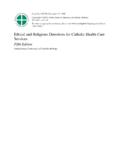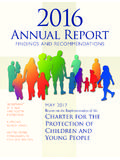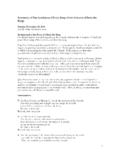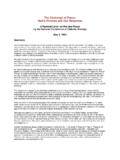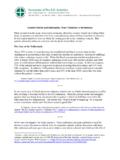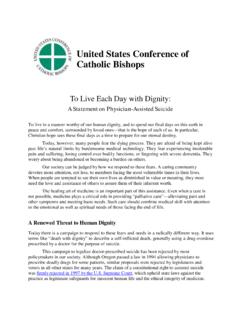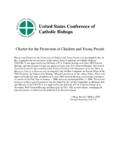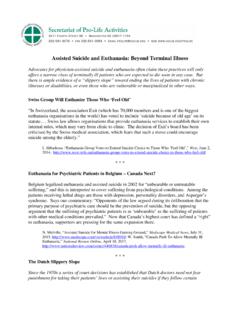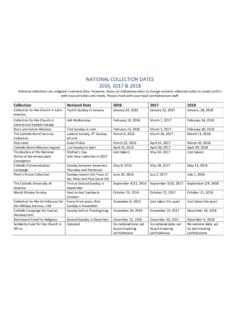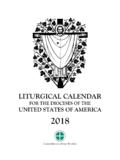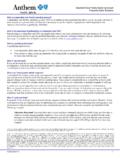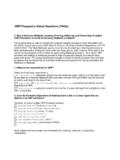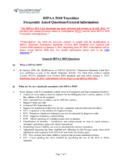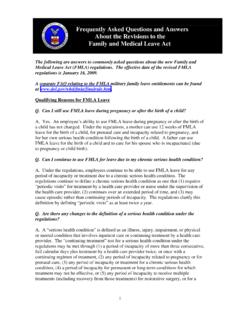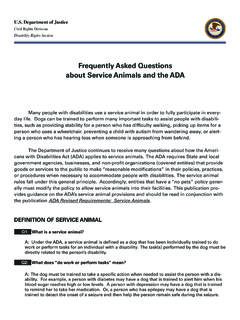Transcription of Foster Care for Unaccompanied Refugee & Immigrant …
1 Lutheran Immigrationand Refugee Service700 Light StreetBaltimore, Md. 21230 Phone: 410-230-2700 Fax: Migration and Refugee Services 3211 4th Street, NE Washington, 20017 Phone: 202-541-3352 Fax: 202-722-8750 Foster care for Unaccompanied Refugee & Immigrant Children Frequently Asked Questions What is the Unaccompanied Refugee Minor (URM) Foster care program? The URM Foster care program is a network of specialized Foster care agencies that possess particular expertise to provide care and social work to foreign born children and youth. This network first began serving foreign born children in1980, when its focus centered on serving separated children from Southeast Asia. Who is eligible for Refugee Foster care ? Seven categories of Unaccompanied youth are eligible for URM Foster care : 1) Refugee Minors: Children identified overseas as Unaccompanied , and who enter the United States prior to their 18th birthday are eligible for the URM program. The High Commissioner for refugees (UNHCR) defines Unaccompanied Refugee minors as children who are separated from both parents and are not cared for by an adult who by law or custom is responsible to do so.
2 2) Asylee Minors: Minors granted asylum in the United States that have no family to care for them. 3) Cuban/Haitian Entrants: Minors who enter the United States as entrants and are determined to be Unaccompanied . 4) Survivors of Human Trafficking: Unaccompanied minors who are identified eligible by the Office of Refugee Resettlement for benefits as a victim of a severe form of human trafficking involving forced labor and/or prostitution. 5) Inaccurate Age Cases: Minors sometimes enter the United States with documents mistakenly indicating they are an adult. In these inaccurate age cases it is possible, through established procedures, to correct the age and arrange for reclassification into the URM program. 6) Special Immigrant Juvenile (SIJ) Cases: Minors in the custody of the Division of Unaccompanied Children Services (DUCS) of the Office of Refugee Resettlement (ORR) that have been granted SIJ status are eligible to receive Foster care services through the URM program.
3 7) Family Breakdown Cases: Minors who enter the United States with a caregiver or are placed with them after arriving might experience a breakdown in this relationship and as a result could become eligible for placement into the URM program. Breakdown can occur as result of abuse, neglect, abandonment or an inability on the caregivers part to meet the child s needs. How long are youth eligible for the URM program? Youth must enter the URM program prior to their 18th birthday. Once in care , youth can remain and receive services from the Foster care program until the age of 20 or 23 (depending on their placing state s child welfare guidelines). What services are available to children through the URM program? The URM Foster care program includes a comprehensive set of services and financial supports designed to assist youth through their transition process to the United States. These services provide for them while they obtain an education, and prepare them for eventual independence.
4 These services are specially geared towards the needs of foreign born youth, with a focus on blending their cultural identity with their new American environment. The particular services provided include: indirect financial support through the provision of housing, food, clothing and other necessities; educational supports; health, mental health and legal services; intensive case management; cultural and recreation activities; mentoring and life skills training. How is the URM program similar and/or different from domestic Foster care , and how is it funded and monitored? URM programs follow the same state or county laws and regulations that govern domestic Foster care . The children in the URM program are eligible for all of the same services as an American born youth in a state Foster care program. However, URM programs are separate from domestic Foster care programs because they are developed by agencies that have experience working with refugees and immigrants. Foster families are oriented towards the particular needs of Refugee and Immigrant youth.
5 Trained social work staff assists with special services which may be needed by foreign born youth ( , English as a Second Language or other special educational needs, cultural identity and adjustment, family tracing, Refugee trauma, etc). Unaccompanied Refugee Minor Foster care programs are funded by the Office of Refugee Resettlement, via the State Refugee Coordinator s office. This office oversees the administration of the URM programs. All URM programs are licensed and monitored regularly by their state child welfare authorities. In addition, LIRS and USCCB provide quality control and serve as an ongoing resource for the programs. What kind of placement options can be provided to minors in the URM program? The URM programs utilize a broad spectrum of placement resources to meet children s needs. Foster families from varied backgrounds are the primary placement option for children placed into care . In addition to Foster homes, programs use a mix of supervised, semi-independent and independent living arrangements for placement.
6 These services are available to older youths (generally 17 and older), and allow them to live with other youth in semi-autonomous arrangements while receiving training and intensive social worker assistance in learning the life skills they will need to live independently. Some programs utilize group homes or group Foster care homes as appropriate. In a few specialized circumstances, programs have been able to access residential treatment services for severely traumatized or special needs youth. Who can become a Foster parent? Refugee Foster care programs seek Foster parents through a variety of community vehicles. These include: local churches, mosques or other houses of worship; community or civic organizations; Mutual Assistance Associations or other Refugee collectives; and word of mouth from other Foster parents. Programs recruit families from the same ethnic communities represented by minors in their care whenever possible. Programs also recruit Immigrant families from varied ethnic origins, who personally understand the Refugee adjustment process, even if they are not from the same ethnic background as the youth.
7 As a compliment to Immigrant families, American born Foster families are also a strong resource for the URM program with different resources and perspectives. Foster families must go through an extensive background clearance and licensing process. These programs seek caring and committed Foster parents, and always welcome Foster parent inquiries. Persons interested in learning more about Refugee Foster parenting can contact the URM program at LIRS or USCCB/MRS. Are Unaccompanied Refugee and Immigrant children ever reunited with their families? Although Unaccompanied minors are generally long-term Foster care placements, programs continue to make attempts to trace family wherever possible. A number of minors have ultimately been able to reunite with family either in the United States or in their country of origin. Similar to children in domestic Foster care , family reunification is always a goal when feasible and in the child s best interest. Where are the Refugee Foster care programs located?
8 There are currently Refugee Foster care programs in the following communities: Phoenix, AZ Worcester, MA Houston, TX Grand Rapids, MI Fort Worth, TX San Jose, CA Lansing, MI Salt Lake City, UT Fullerton, CA Jackson, MS Richmond, VA Washington, DC Rochester, NY Seattle, WA Denver, CO Syracuse, NY Tacoma, WA Colorado Springs, CO Fargo, ND Miami, FL Philadelphia, PA Newton, MA Contact Information: Migration and Refugee Services Children s Services Conference of Catholic Bishops Lutheran Immigration and Refugee Service 3211 4th Street, NE, Washington, 20017-1194 700 Light Street, Baltimore, Md. 21230-3850 202/541-3352, 410/230-2757, With support of the United States Departments of State, Health and Human Services, and Homeland Security
